Planned from scratch: Brasilia at 60 in pictures
- Published
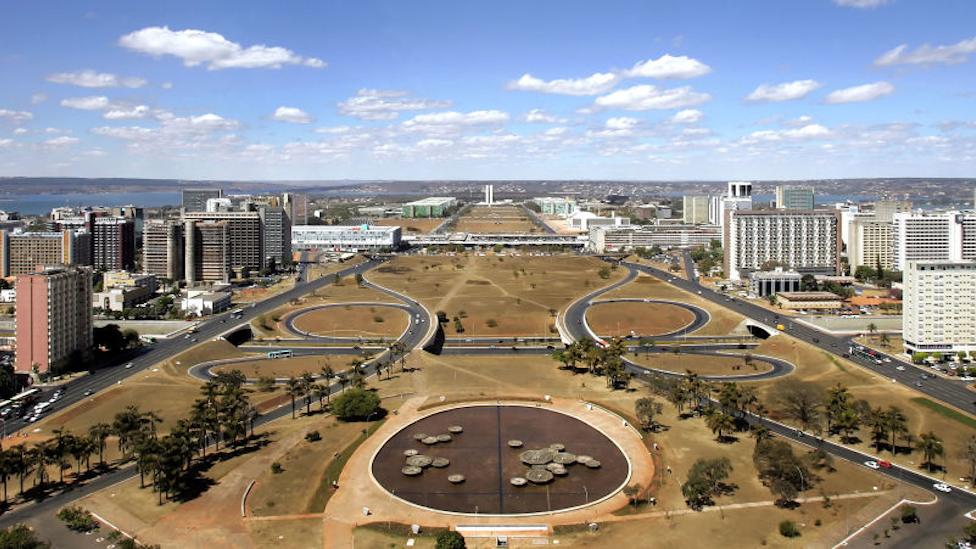
On 21 April 1960 President Juscelino Kubitschek led the inauguration ceremony for Brazil's purpose-built capital Brasilia - replacing Rio de Janeiro as the federal capital and seat of government. It is the archetypal planned town, built from scratch on the desert-like Central Plateau in the late 1950s.
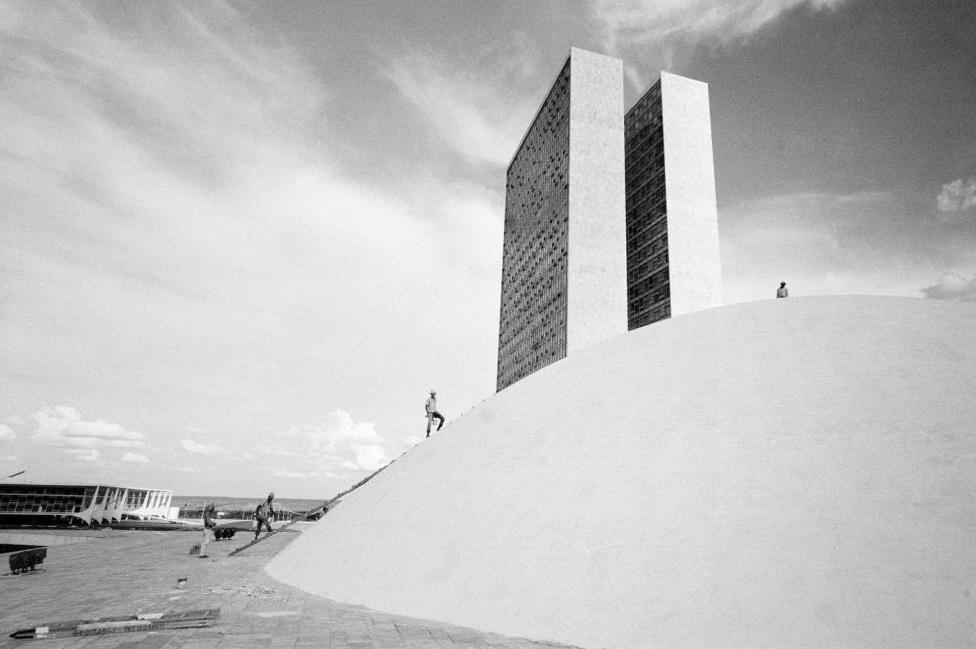
The buildings constructed to house the branches of Brazil's government as well as the apartment blocks built to house those working in the capital represent some of the finest Modernist design of the period.
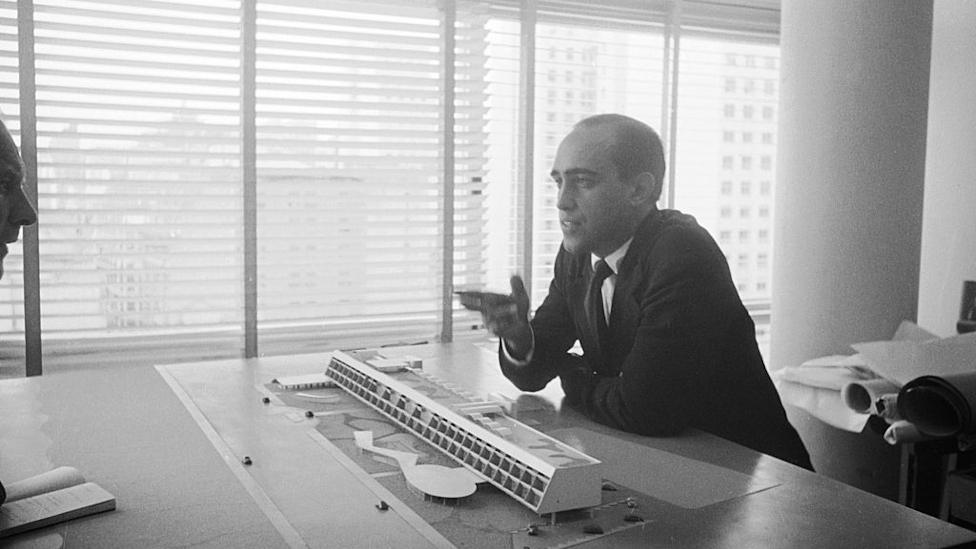
Nearly all of the buildings were designed by Oscar Niemeyer, one of the most innovative and daring architects of the past 60 years.
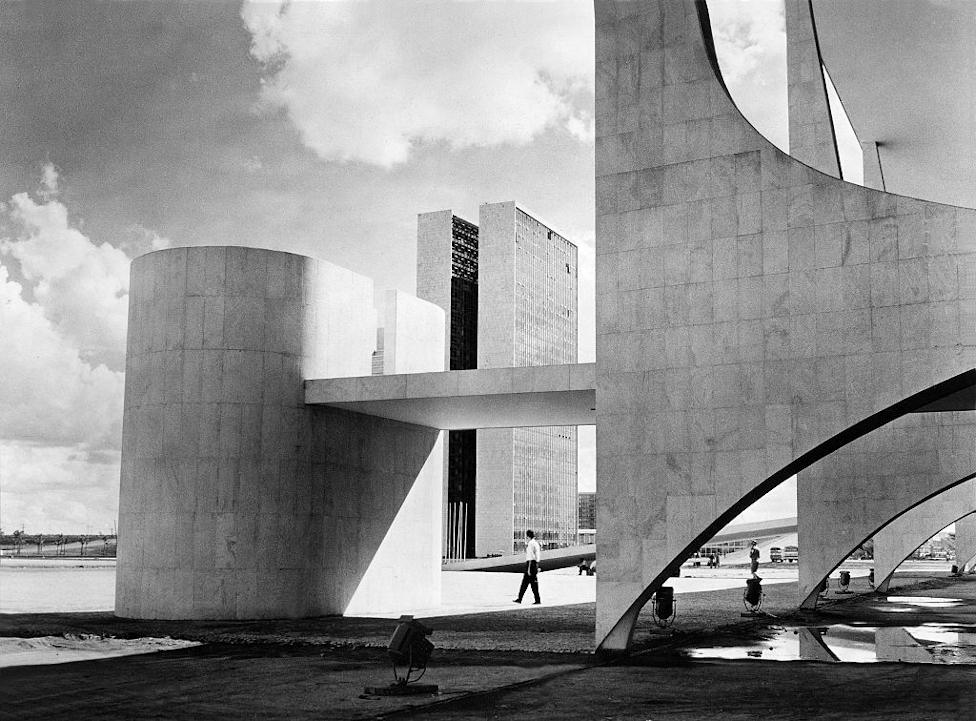
Niemeyer, a protégé of Le Corbusier, dreamed up buildings of planes and curves strung along a central boulevard known as the Esplanade of Ministries.
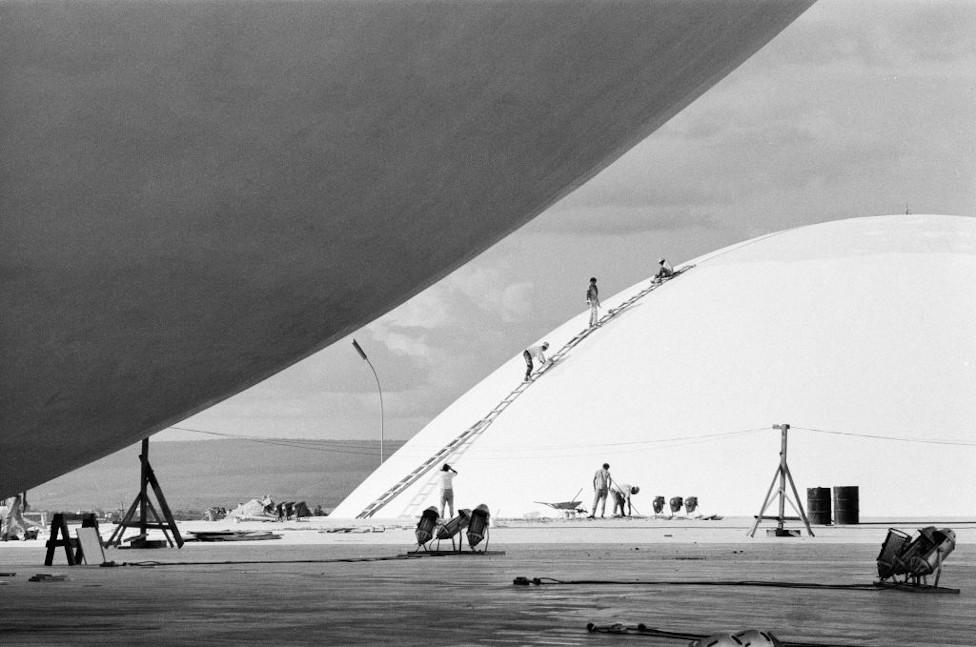
Workers came from across the country and lived in small villages built outside the city, but many remained when the construction was complete and these villages are now Brasilia's satellite cities.
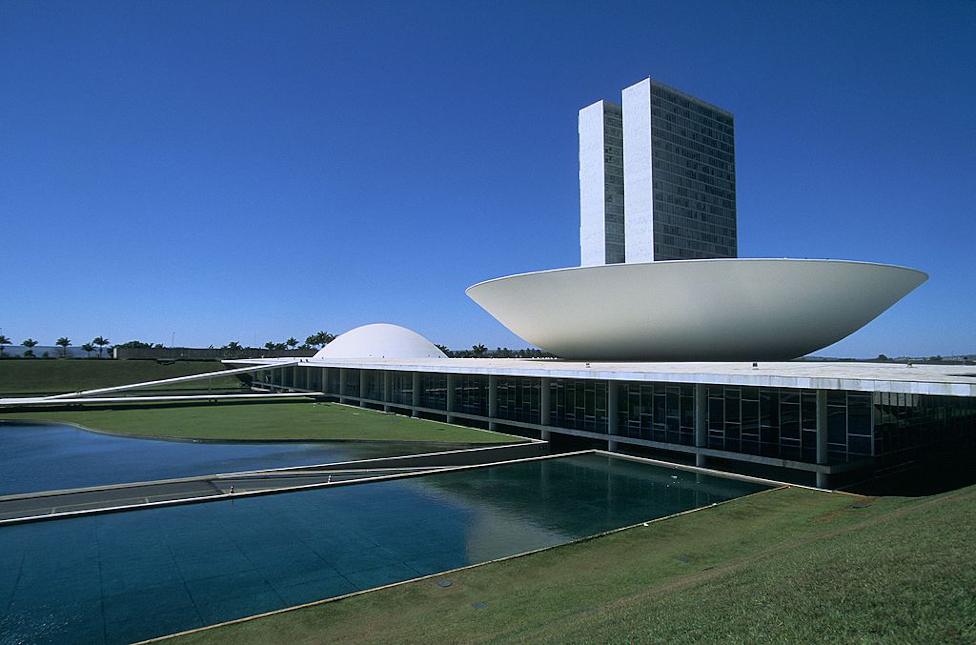
Together with the town planner Lucio Costa and landscape architect Roberto Burle Marx, Niemeyer designed and built the core of Brasilia in just 41 months.
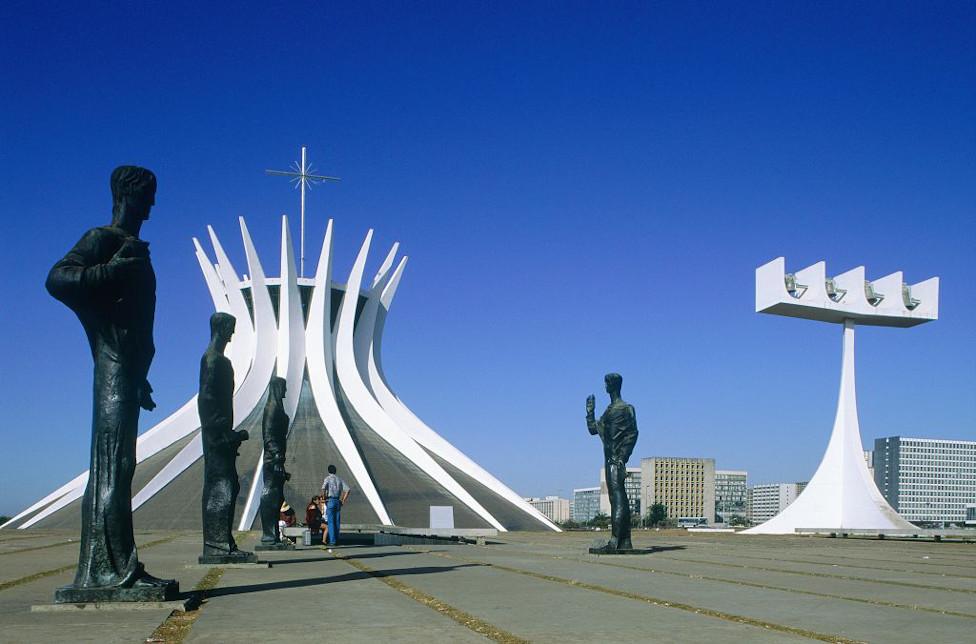
The project was highly ambitious but was officially inaugurated just four years after work was started in 1956 and includes buildings such as the National Cathedral - a crown-shaped structure of glass suspended between concrete struts which sweep upwards and inwards and then reach out to the heavens.
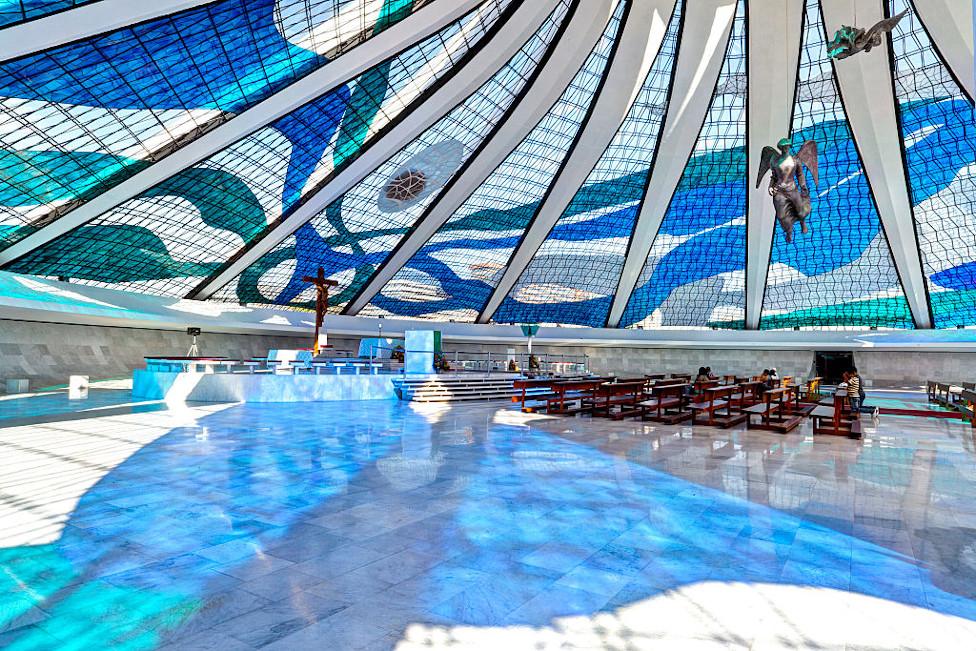
Rather than dark and forbidding like the interiors of older cathedrals, the inside is awash with light.
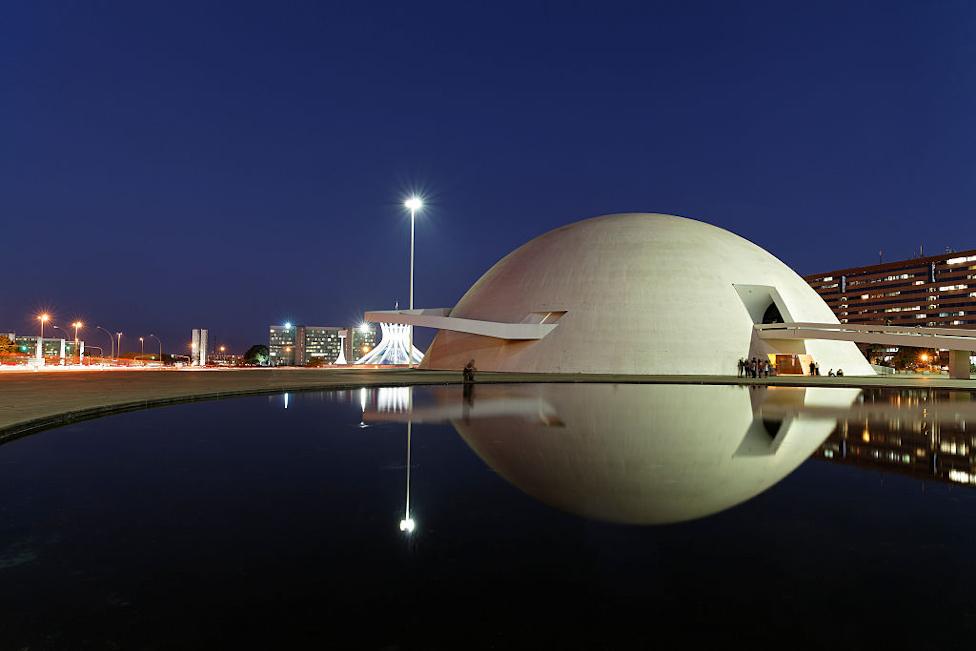
The glorious curves of his characterful buildings - they belonged very much to Brazil despite being designed in what was thought of as an "international" style - brought a vivaciousness and glamour to Modern Movement design.
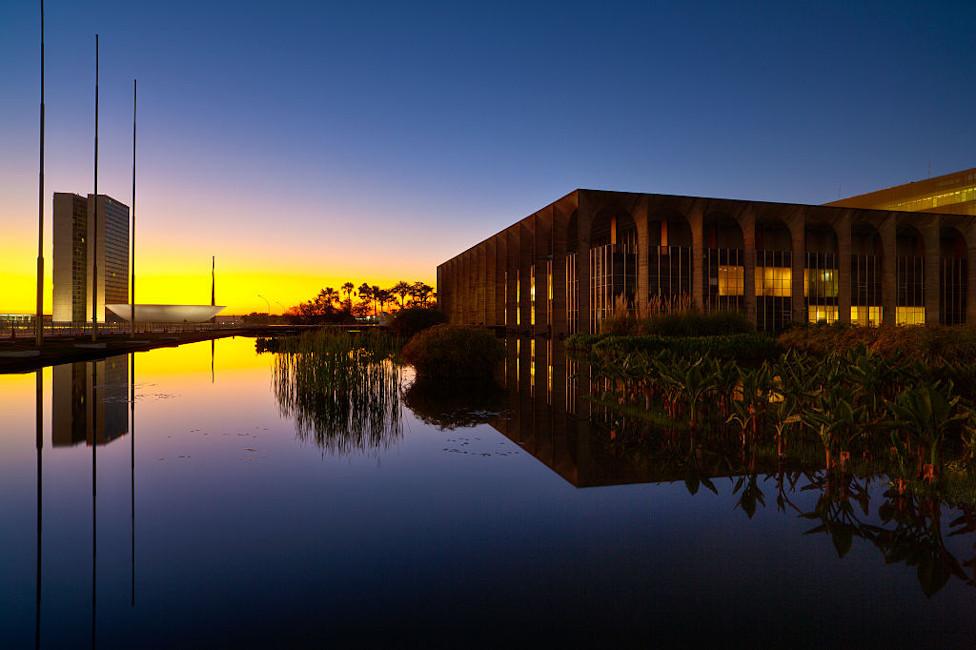
Brasilia signified a country at the dawn of a new era ready to take on the world. Widely regarded as one of the finest examples of modernist architecture in the world, today this compelling modern city is a Unesco World Heritage Site.
All photographs subject to copyright.